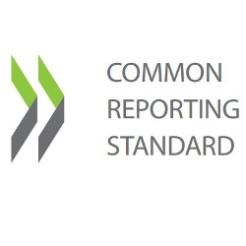Umbrella bodies have written to the minister for civil society to raise concerns that a transparency regime could cause funders to scale back on grants, and have called for the exemption of charities.
The Common Reporting Standard (CRS), which asks financial institutions to report on account holders as a method of preventing tax evasion, came into force at the beginning of this year, and charities are concerned it will place a significant administrative burden on grant-making charities in particular.
The Association of Charitable Foundations (ACF), the Charitable Finance Group (CFG), and the Association of Charitable Organisations have written to Rob Wilson, minister for civil society, saying they have “deep concerns” about the impact of the new reporting requirement.
They say that are unable to give an exact figure on how much CRS could cost the sector, but that they “believe that thousands of charities could be affected by the new HMRC rules requiring endowed charities to collect and report tax information on grant recipients”.
The letter said: “The red tape burden is potentially so great, the rules so difficult to interpret and the implications so tricky in terms of human rights and data protection law, that we believe there is a very real risk that many funders will scale back grant-making for those most in need on account of a regime designed to monitor the affairs of the world’s wealthiest individuals and corporations.
It added that they “cannot believe that this is the government’s policy intention”, and that they urgently seek the help of the minister.
For the sake of CRS, charities can be considered as financial institutions, and their grantees as account holders. The CRS means that that have to report and do due diligence on all grants.
Among the concerns of the umbrella bodies is the “considerable additional red tape for charities of all sizes”, because they will be required to record and verify the tax identification numbers of beneficiaries and organisations that they fund both in the UK and in reporting jurisdictions based on the self-certified and in some cases documented statements made by grant-recipients - which is information they don’t currently collect.
They also expressed concern about the impact on the relationship between charities and their beneficiaries. They said: “We do not believe that the relationship between a charity and a beneficiary should be seen as ‘transactional’, but asking for tax information risks turning receiving a grant from a charity into something akin to setting up a bank account.”
The Organisation for Economic Co-operation and Development (OECD) is responsible for the regime, and the OECD “expressly, for policy reasons, did not exclude charities”, unlike the US regime it based on, which is known as FATCA.
In the letter signed by Caron Bradshaw, chief executive of CFG, David Emerson, chief executive of ACF and Dominic Fox, chief executive of the Association of Charitable Organisations, they call on Wilson to make representations to HMRC to “ensure that the CRS is implemented in a way that minimises the impact on charities”. They said that the “optimal solution” is for charities to be excluded from CRS, in the same way as they are for FATCA.









